

— Products —
 Consumer hotline +8618073152920
Consumer hotline +8618073152920 WhatsApp:+8615367865107
Address:Room 102, District D, Houhu Industrial Park, Yuelu District, Changsha City, Hunan Province, China
All products
Soil nutrient detection sensors are devices used to measure the concentration of various nutrients in the soil, which is vital for plant growth and agricultural productivity. These sensors play a vital role in precision agriculture, helping farmers make informed decisions about fertiliser application, soil management and crop nutrition. Here are some key points about soil nutrient detection sensors:.
Tel/WhatsApp:+8615367865107
Email:Arvin@niubol.com +Nearly 100 partner company in more than 68 countries. We are committed to providing high-quality, practical products to meet your needs and help you solve problems.Product Details
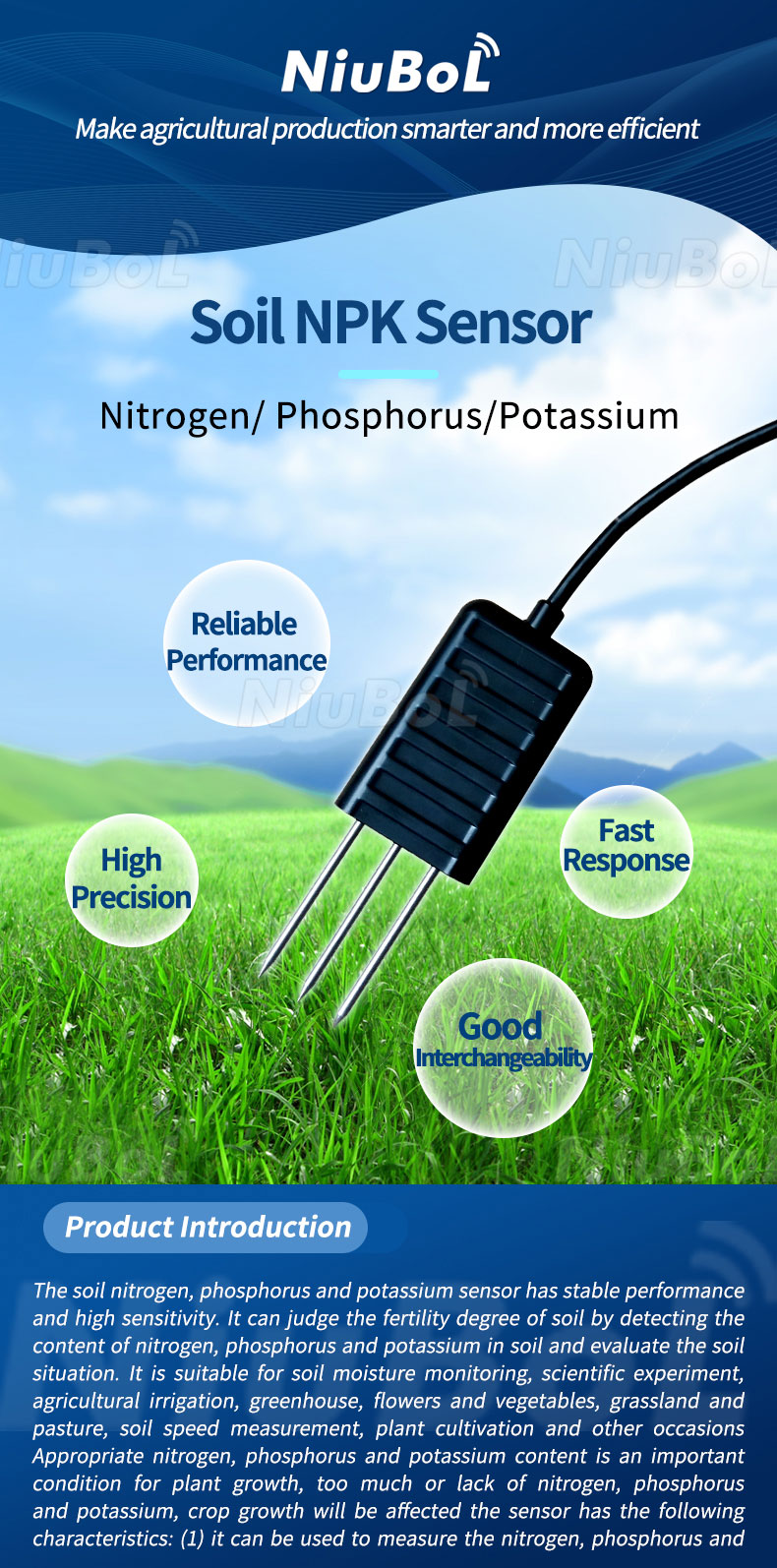
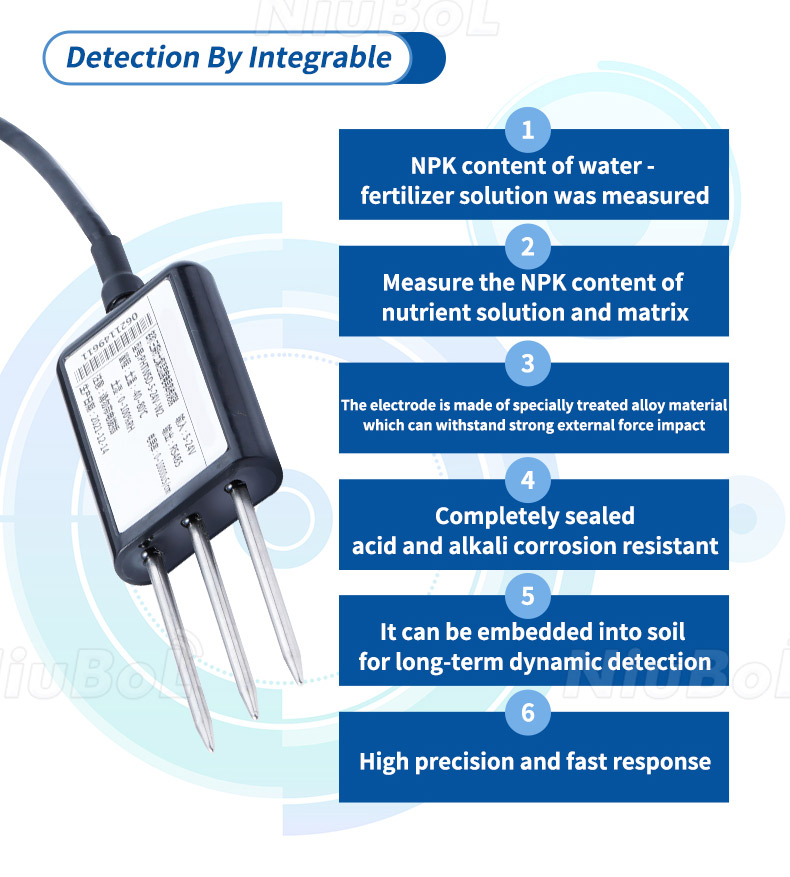
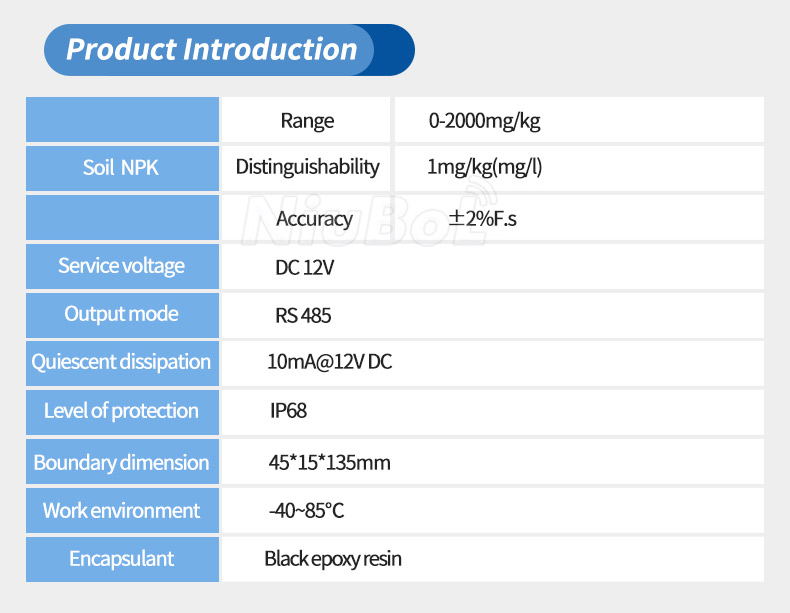
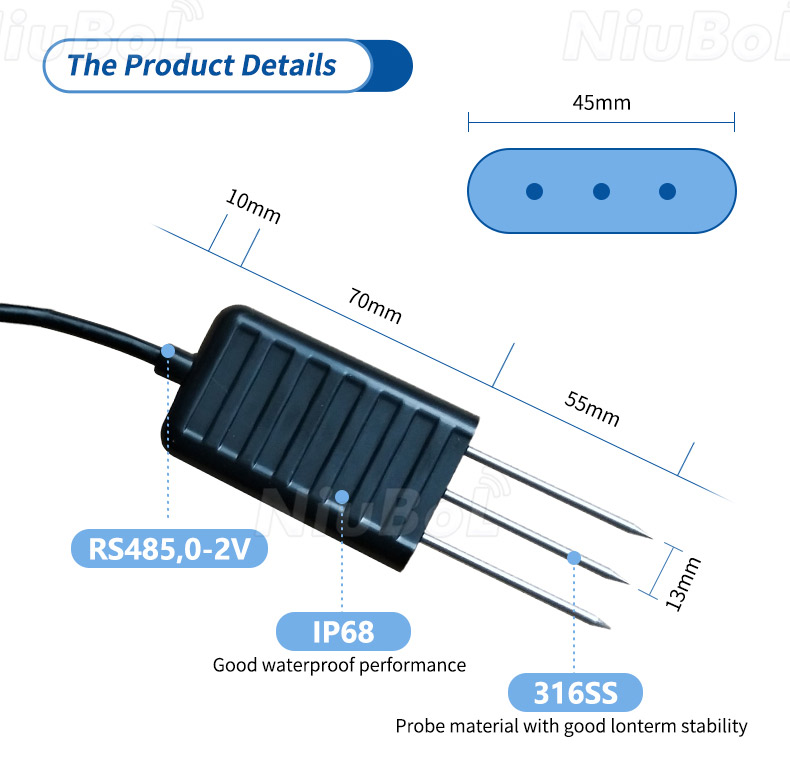
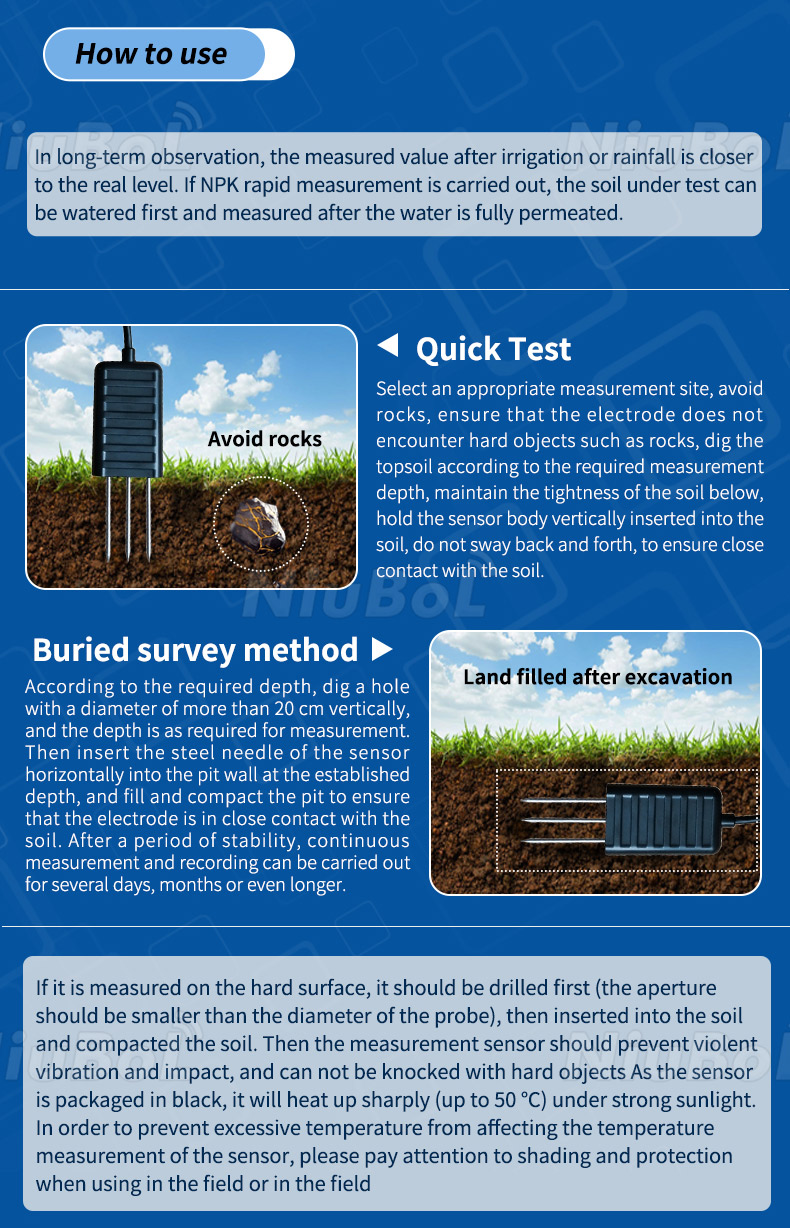
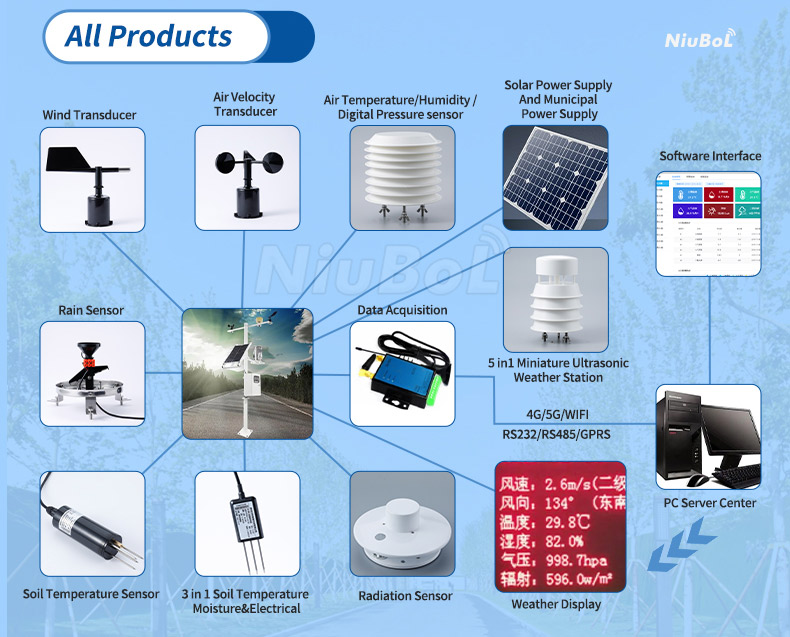
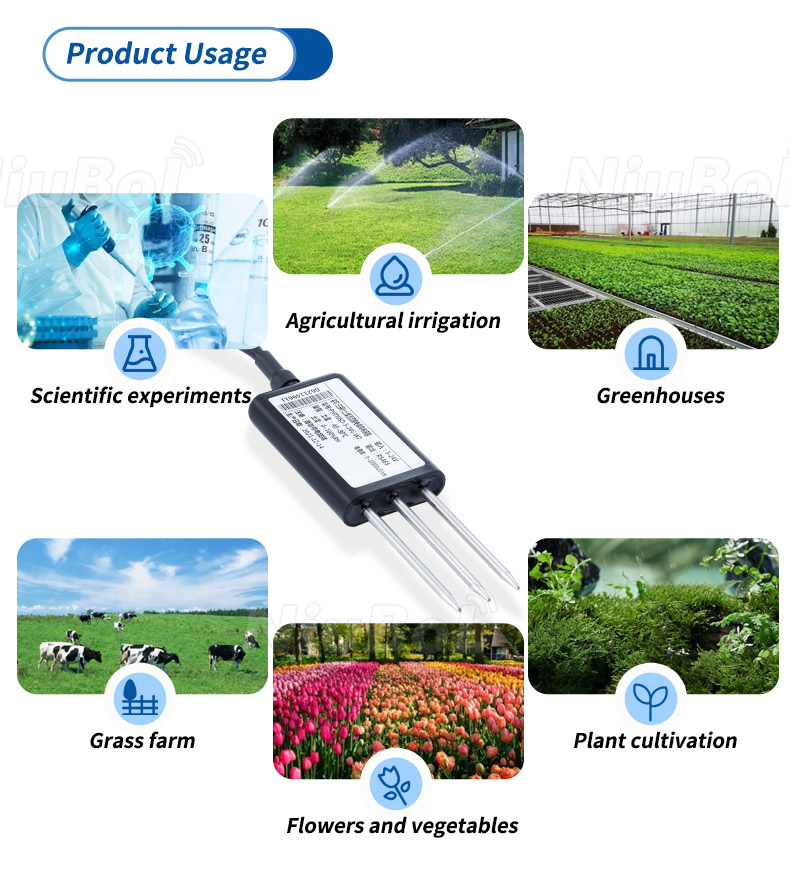
Soil nutrient detection sensors are devices used to measure the concentration of various nutrients in the soil, which is vital for plant growth and agricultural productivity. These sensors play a vital role in precision agriculture, helping farmers make informed decisions about fertiliser application, soil management and crop nutrition. Here are some key points about soil nutrient detection sensors:.
1. Types of nutrients measured.
-Macronutrients: nitrogen (N), phosphorus (P), potassium (K), calcium (Ca) and magnesium (Mg).
Trace elements: iron (Fe), zinc (Zn), manganese (Mn), copper (Cu) and boron (B).
This paper focuses on NPK sensors:
NPK sensors are sensors specifically designed to measure the three main nutrients in the soil: nitrogen (N), phosphorus (P) and potassium (K). These elements are the main nutrients necessary for plant growth and have a direct impact on crop yield and quality.
1. Soil NPK sensor working principle:
NPK sensors usually use electrochemical or optical sensor technology. Electrochemical sensors detect the concentration of nutrients in the soil solution by measuring their electrochemical reactions. Optical sensors, on the other hand, determine nutrient content by analysing the absorption or emission of specific wavelengths of light from a soil sample.
2. importance:
- Nitrogen: essential for chlorophyll synthesis and cell division in plants.
- Phosphorus: involved in energy conversion and DNA synthesis in plants.
- Potassium: important for water regulation, nutrient transport and enzyme activity in plants.
3. Siol NPK sensor application scenarios:
- Precision Fertiliser Application: Monitoring real-time data of nutrients in the soil through NPK sensors to help farmers accurately calculate the amount of fertiliser to be applied and reduce wastage.
- Crop Nutrition Management: Track nutrient requirements during crop growth to ensure plants receive proper nutrition.
- Soil health assessment: Evaluates the long-term fertility of the soil and provides a basis for soil improvement.
4. Soil NPK Sensor Benefits:
- Increase Crop Yield: Ensure that plants are getting the right amount of NPK nutrients, which helps to increase crop yields.
- Reduce fertiliser use: Avoid over-fertilisation and reduce negative impacts on the environment.
- Cost saving: Through precise application of fertiliser, the amount of fertiliser used can be reduced, thus reducing the cost of cultivation.
5. Siol NPK sensor development trend:
- Integration: NPK sensors are integrated with other soil sensors (e.g. soil temperature and humidity, pH sensors) to provide more comprehensive soil data.
- Intelligent: through the Internet of Things technology, the data from NPK sensors are transmitted to the cloud, enabling remote monitoring and analysis of the data.
- Portable: develop portable NPK sensors to facilitate rapid soil nutrient testing by farmers in the field.
In conclusion, sensors for soil nutrient testing are important tools for modern agriculture to help farmers make data-driven decisions, promote sustainable agricultural practices, enhance crop health, and maximise yields. As technology continues to advance, these sensors are becoming more accurate, reliable and accessible, further improving agricultural productivity and environmental stewardship.
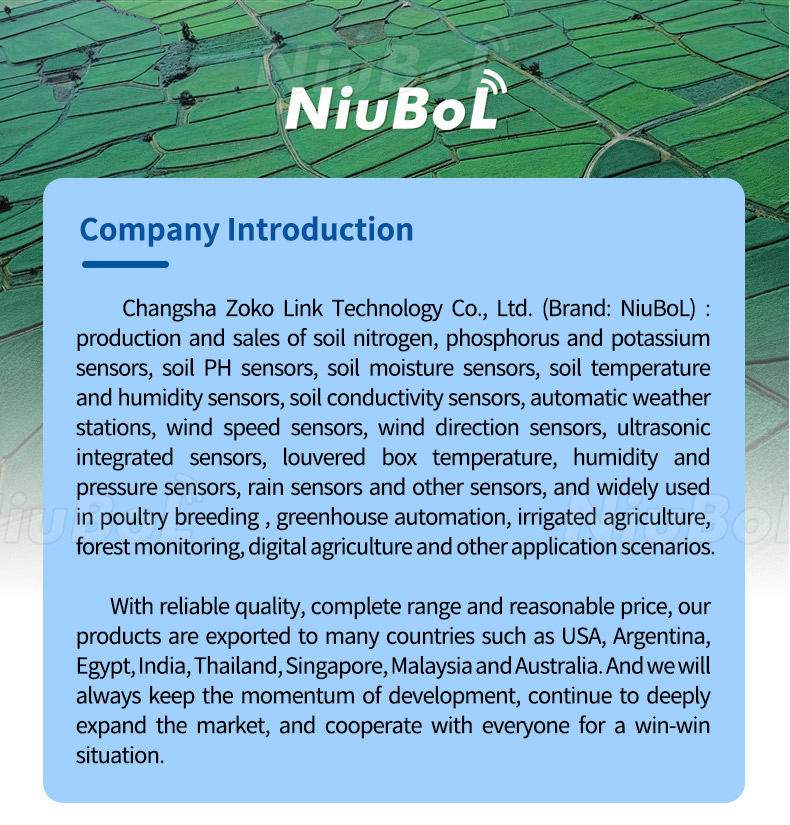

Remark:
Soil NPK sensor actually measures the electrical conductivity of the soil. The manufacturer multiplies the measured conductivity value by a corresponding factor (based on the conventional soil content of nitrogen, phosphorus and potassium) to arrive at a value for the nitrogen, phosphorus and potassium content. Due to the different soils and environments on site, such sensors cannot accurately measure the actual nitrogen, phosphorus and potassium content of the soil on site, but give an empirical, theoretical value.
Sensors & Weather Stations Catalog
Agriculture Sensors and Weather Stations Catalog-NiuBoL.pdf
Weather Stations Catalog-NiuBoL.pdf
Related recommendations
 Multi-Depth Soil Sensor RS485
Multi-Depth Soil Sensor RS485 TDR Soil Moisture Sensor
TDR Soil Moisture Sensor Pyranometer Solar Radiation Sensors
Pyranometer Solar Radiation Sensors Soil ph sensor
Soil ph sensor Tipping Bucket Rain Gauge
Tipping Bucket Rain Gauge Air Temperature and Humidity Sensor
Air Temperature and Humidity Sensor
Screenshot, WhatsApp to identify the QR code
WhatsApp number:+8615367865107
(Click on WhatsApp to copy and add friends)